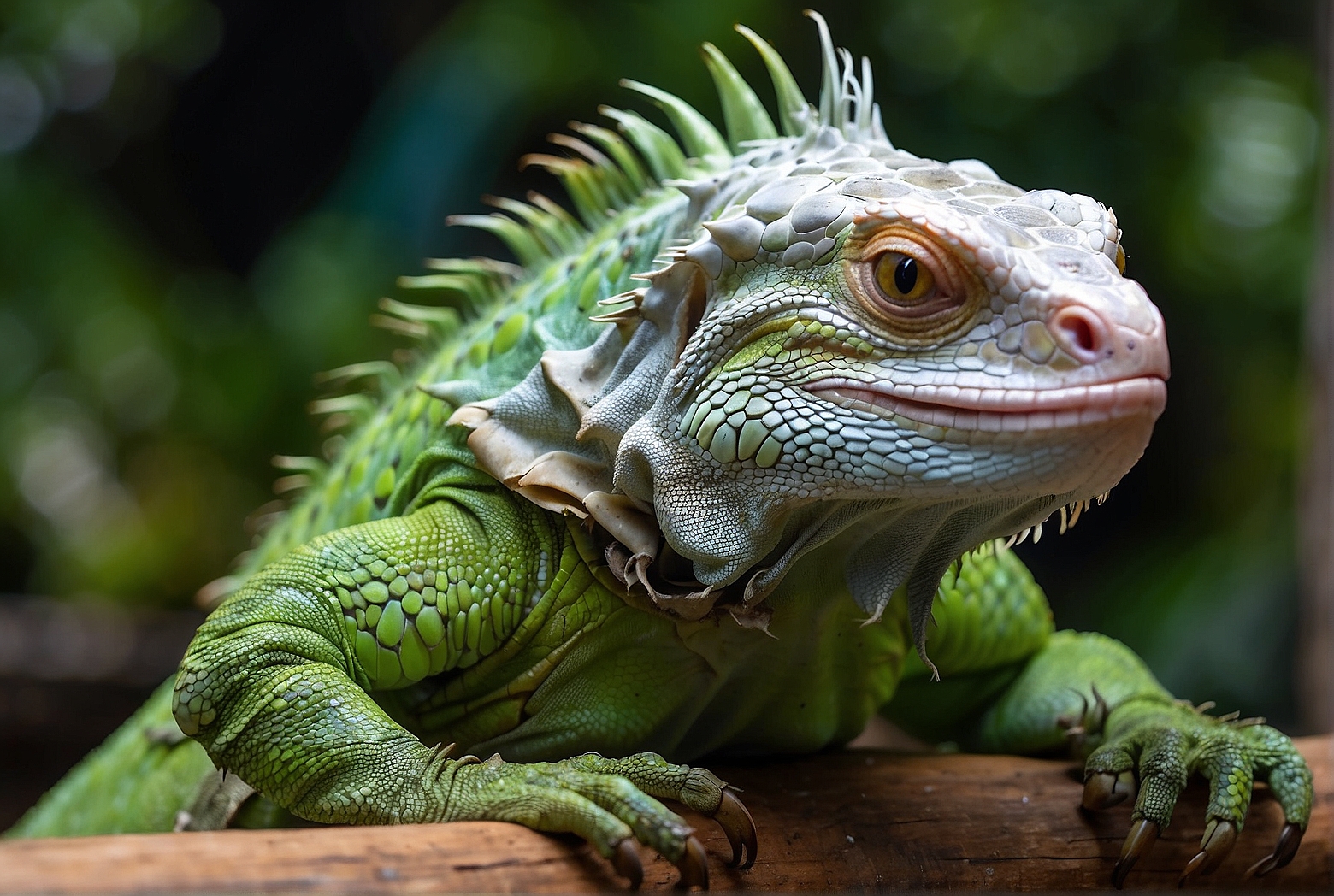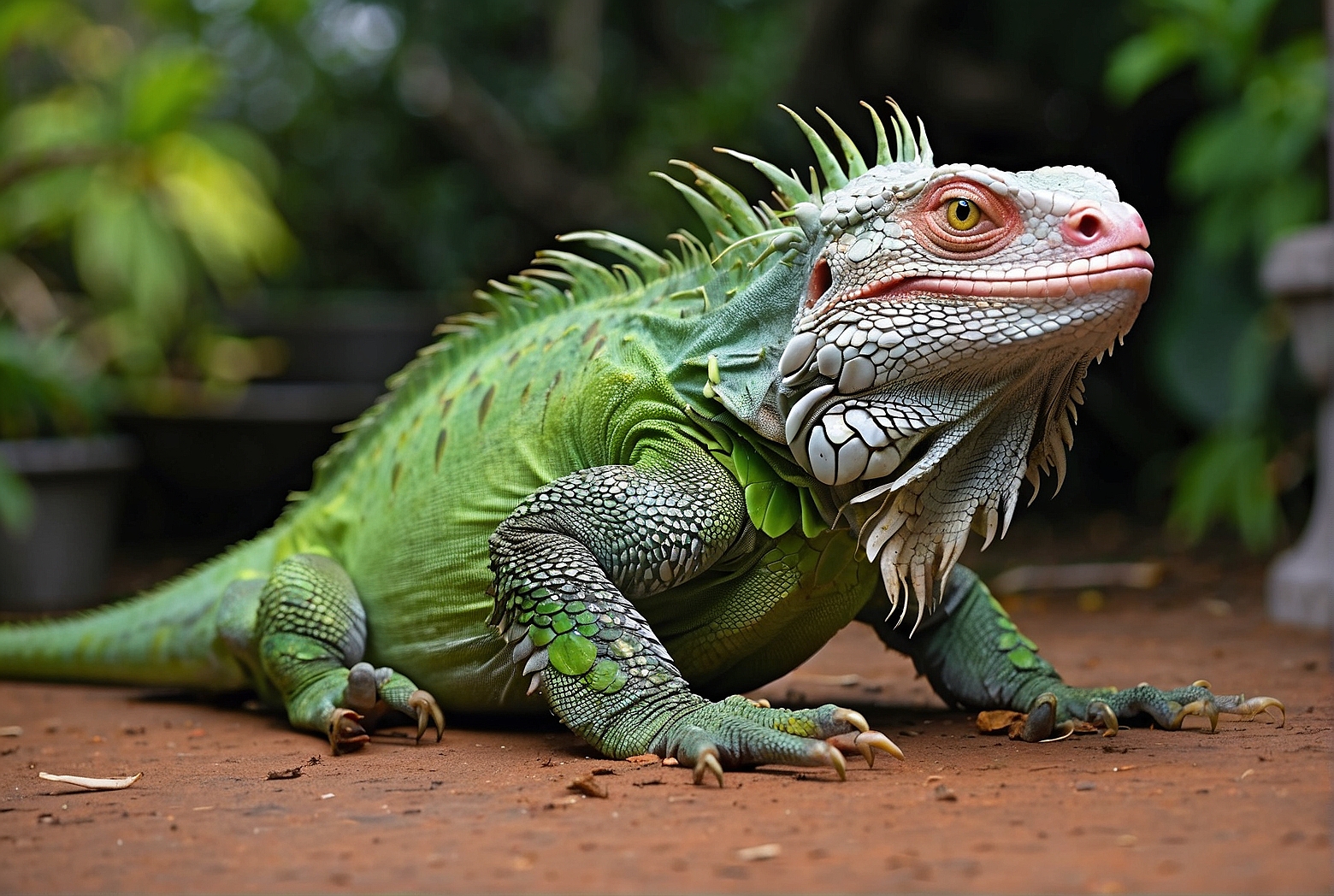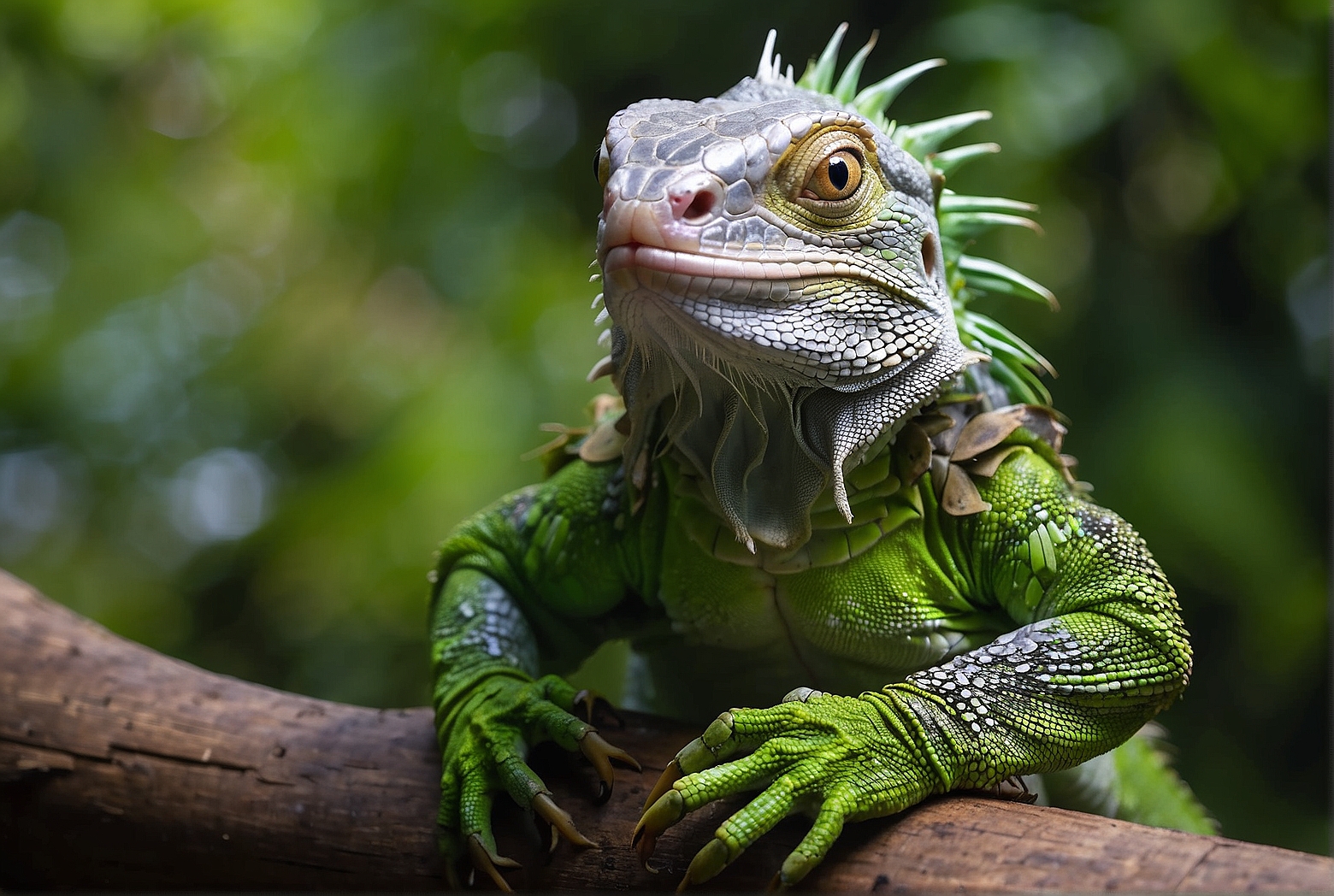Having a green iguana as a pet can be an exciting and rewarding experience. However, it can also be concerning when your green iguana suddenly stops eating. If you find yourself in this situation, it’s important to understand the potential reasons behind your pet’s loss of appetite. From dietary issues to environmental factors, there could be several explanations for your green iguana’s refusal to eat. In this article, we will explore some common causes and provide helpful tips on how to address them, ensuring the health and well-being of your beloved reptile companion.
Possible Reasons for a Green Iguana Not Eating
Stress
One of the possible reasons for a green iguana not eating is stress. Green iguanas are sensitive creatures and can easily become stressed in certain situations. Stressors such as loud noises, frequent handling, changes in environment, or the presence of other pets can cause them to lose their appetite. It is important to create a calm and quiet environment for your green iguana to reduce stress levels and encourage them to eat.
Inadequate Habitat
Another reason why a green iguana may not be eating is an inadequate habitat. Green iguanas require a spacious and well-equipped enclosure to thrive. If their habitat is too small or lacks essential components such as heat lamps, UVB lighting, or appropriate hiding places, they may feel uncomfortable and refuse to eat. Providing them with a suitable habitat that closely resembles their natural environment can help stimulate their appetite.
Wrong Temperature
Green iguanas are ectothermic animals, meaning they rely on external sources of heat to regulate their body temperature. If the temperature in their environment is too high or too low, it can affect their metabolism and digestion, leading to a decreased appetite. It is crucial to maintain the appropriate temperature gradient within their enclosure, with a basking spot around 95-100°F (35-38°C) and a cooler area around 80°F (27°C). Regularly monitoring and adjusting the temperature can help address this issue.
Poor Diet
The diet of a green iguana plays a vital role in their overall health and appetite. If they are not receiving a nutritionally balanced diet, they may lose interest in their food. Green iguanas are primarily herbivorous and require a diet consisting of fresh leafy greens, vegetables, fruits, and occasionally high-quality commercial iguana food. It is important to avoid feeding them foods that are toxic to their species, such as spinach or iceberg lettuce, and to provide a wide variety of foods to ensure they receive all the necessary nutrients.
Illness or Disease
When a green iguana is not eating, it could be a sign of an underlying illness or disease. Digestive problems, respiratory infections, parasites, or other health issues can affect their appetite and overall well-being. If your green iguana continues to refuse food for an extended period or shows other symptoms of illness, it is crucial to consult a veterinarian who specializes in reptiles. A veterinarian will be able to conduct a thorough examination, perform any necessary tests, and provide appropriate treatment to address the health issue.

Signs of a Green Iguana Not Eating
Loss of Appetite
One of the main signs that your green iguana is not eating is a loss of appetite. If your iguana is not showing any interest in food or is consistently leaving their meals untouched, it is an indication that something is not right. Monitoring their eating habits and noting any changes in appetite is crucial for identifying potential issues early on.
Weight Loss
Another sign that your green iguana may not be eating is significant weight loss. If you notice that your iguana’s body is becoming visibly thinner or their bones are becoming more prominent, it is an alarming sign. Weight loss can be a result of a variety of factors, including a poor diet, improper temperature, or an underlying illness. Regularly weighing your green iguana and keeping track of their weight can help you detect any changes and take appropriate action.
Behavioral Changes
A green iguana not eating may also exhibit behavioral changes. They may become lethargic, inactive, or show signs of depression. If your usually active and alert iguana suddenly becomes unresponsive or avoids interaction, it could be a sign of a problem. Paying close attention to their behavior and noting any unusual changes can aid in determining the cause of their decreased appetite.
How to Address a Green Iguana Not Eating
Identify the Cause
The first step in addressing a green iguana’s loss of appetite is to identify the underlying cause. Carefully assess their environment, diet, and overall health to determine what may be influencing their lack of appetite. Examine their enclosure for any potential stressors or inadequate conditions, review their diet for any deficiencies or toxic foods, and evaluate their overall behavior and physical state for signs of illness.
Reduce Stress
If stress is identified as the cause of your green iguana’s decreased appetite, take steps to reduce stress levels within their environment. Ensure their enclosure is in a quiet and calm area of your home, away from loud noises or heavy foot traffic. Minimize handling and create a consistent routine to help them feel secure. Provide ample hiding places and create a safe space where they can retreat when they feel overwhelmed. Gradually introducing any changes or new elements in their enclosure can also help reduce stress.
Improve Habitat
If an inadequate habitat is the reason for your green iguana’s loss of appetite, it is essential to improve their living conditions. Ensure their enclosure is large enough for them to move around comfortably, with plenty of vertical climbing space. Provide appropriate heating and lighting elements, including a basking spot with a designated temperature gradient. Additionally, incorporate a variety of branches, rocks, and hiding spots to mimic their natural habitat and offer mental stimulation.

Ensure Proper Temperature
Maintaining the correct temperature within your green iguana’s enclosure is crucial for their overall health and appetite. Use reliable thermometers to monitor the temperature at different areas of their enclosure, particularly the basking spot. Adjust the positioning and wattage of heat lamps to achieve the appropriate temperature range. Consult with a reptile specialist or veterinarian if you are uncertain about the optimal temperature requirements for your green iguana.
Revise Diet
If a poor diet is the cause of your green iguana’s loss of appetite, it is essential to revise their diet to ensure they receive proper nutrition. Provide a wide variety of fresh leafy greens, such as collard greens, mustard greens, and kale, as the main component of their diet. Supplement their diet with a variety of vegetables and fruits, including bell peppers, carrots, and berries. Offer occasional high-quality commercial iguana food to ensure they receive all essential nutrients. Research and consult with a reptile nutritionist for guidance on creating a well-balanced diet specific to green iguanas.
Consult a Veterinarian
If you have tried identifying and addressing the possible causes of your green iguana’s loss of appetite without success, it is highly recommended to consult a veterinarian who specializes in reptiles. A reptile veterinarian will have the knowledge and expertise to conduct a thorough examination, perform diagnostic tests if necessary, and provide appropriate treatment options. Prompt veterinary care can help diagnose and treat any underlying illnesses or diseases that may be affecting your green iguana’s appetite.
Conclusion
A green iguana not eating can be a cause for concern, but by understanding the possible reasons and signs, as well as implementing the appropriate measures, you can address this issue effectively. By reducing stress, improving their habitat, maintaining proper temperature, revising their diet, and seeking veterinary assistance when needed, you can help ensure your green iguana’s overall health and well-being. Remember to monitor their eating habits regularly and make necessary adjustments to provide the best care possible for your green iguana.
